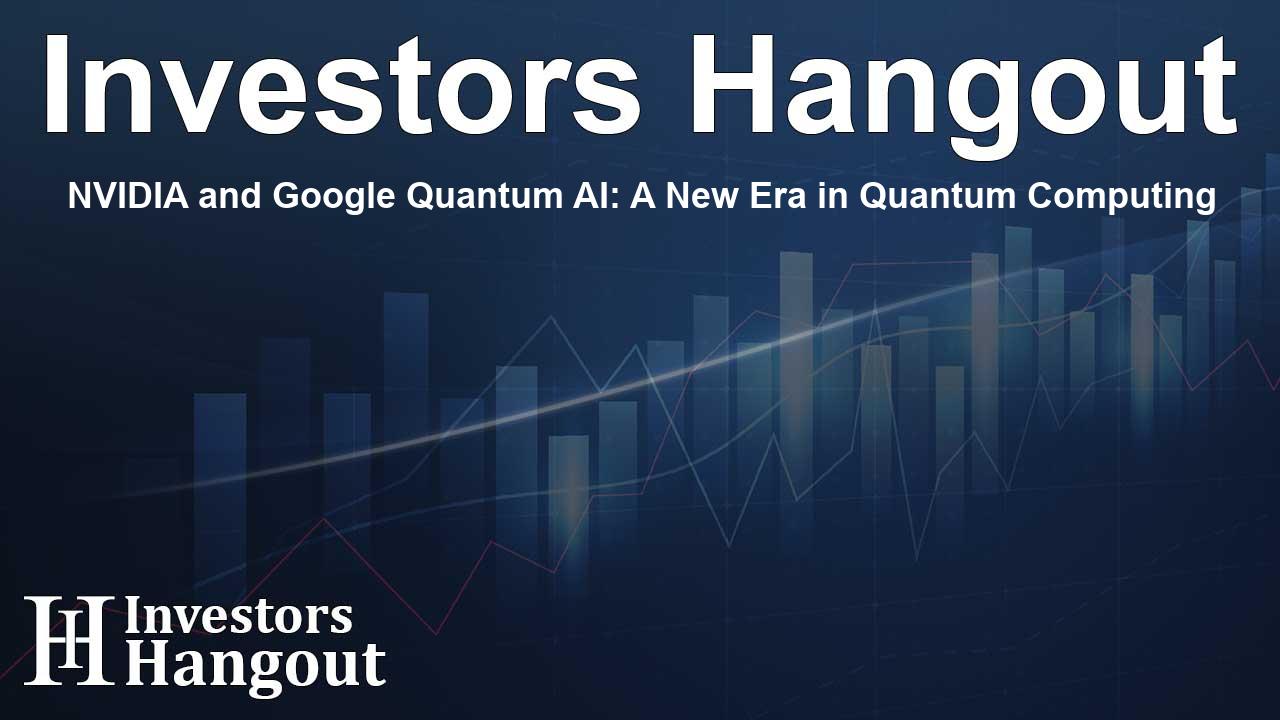NVIDIA and Google Quantum AI: A New Era in Quantum Computing

NVIDIA and Google Quantum AI Collaborate for Quantum Computing Advancement
NVIDIA recently announced an exciting partnership with Google Quantum AI aimed at revolutionizing the design and development of next-generation quantum computing devices. This collaboration utilizes advanced simulations powered by the NVIDIA CUDA-Q platform, a cutting-edge tool designed to enhance computation capabilities.
Harnessing Hybrid Quantum-Classical Computing
Google Quantum AI is leveraging a hybrid quantum-classical computing architecture in conjunction with the NVIDIA Eos supercomputer. This powerful combination facilitates intricate simulations that delve into the underlying physics of quantum processors. Overcoming the current challenges associated with quantum computing hardware is essential, particularly the issue of “noise” which limits the number of quantum operations that can be performed.
The Importance of Noise Control in Quantum Computing
Noise presents a significant barrier in the quest for reliable quantum computing. According to Guifre Vidal, a research scientist at Google Quantum AI, the journey towards developing commercially viable quantum computers hinges on the ability to upscale quantum hardware while managing noise levels effectively. This collaboration is exploring the implications of noise on increasingly expansive quantum chip designs, marking a significant step forward.
Accelerated Simulations with CUDA-Q and H100 GPUs
For those familiar with the intricacies of quantum design, understanding noise dynamics is crucial. Traditional methods for simulating these complex interactions were often prohibitively costly in terms of computation resources. However, the integration of the CUDA-Q platform enables Google to utilize 1,024 NVIDIA H100 Tensor Core GPUs at the Eos supercomputer. This enables one of the world's most extensive and rapid dynamical simulations of quantum devices, achievable at a significantly reduced cost.
The Impact of AI on Quantum Success
Tim Costa, director of quantum and high-performance computing at NVIDIA, emphasizes the pivotal role that AI supercomputing will play in the advancement of quantum technologies. He notes that Google’s innovative approach using the CUDA-Q platform highlights how GPU-accelerated simulations are crucial for addressing real-world challenges through quantum computing.
Comprehensive Simulations of Quantum Devices
Through the joint efforts of NVIDIA and Google, significant milestones have been achieved in the realm of quantum simulations. Utilizing CUDA-Q and the formidable H100 GPUs, Google has successfully performed comprehensive simulations of quantum devices, pushing the envelope with designs incorporating up to 40 qubits. What was once a week-long simulation can now be executed within minutes, showcasing the efficiency of these advanced technologies.
Empowering Quantum Engineers
The software engine that powers these accelerated dynamic simulations is set to be made publicly accessible through the CUDA-Q platform. This initiative is geared towards empowering quantum hardware engineers, allowing them to swiftly advance their system designs and contribute to the future of quantum technology.
About NVIDIA
NVIDIA (NASDAQ: NVDA) stands at the forefront of accelerated computing and continues to innovate in AI and quantum technologies. As a guiding force within the industry, NVIDIA's commitment to pushing technological boundaries reinforces its dedication to offering state-of-the-art solutions.
Frequently Asked Questions
What is the purpose of the NVIDIA and Google Quantum AI partnership?
The partnership is aimed at accelerating the design and development of next-generation quantum computing devices through advanced simulations.
How does the CUDA-Q platform benefit quantum simulations?
The CUDA-Q platform allows efficient simulations of quantum devices, enabling researchers to explore designs involving a higher number of qubits while managing noise effectively.
Why is managing noise important in quantum computing?
Noise can limit the number of quantum operations a processor can perform, which is crucial for achieving reliable and commercially viable quantum computations.
What are H100 Tensor Core GPUs used for?
The H100 GPUs are utilized in dynamic simulations of quantum devices, providing enhanced computational power to expedite and scale the research.
How can quantum engineers access the simulation software?
The software enabling these accelerated simulations will be made publicly available on the CUDA-Q platform, aiding engineers in their design processes.
About The Author
Contact Henry Turner privately here. Or send an email with ATTN: Henry Turner as the subject to contact@investorshangout.com.
About Investors Hangout
Investors Hangout is a leading online stock forum for financial discussion and learning, offering a wide range of free tools and resources. It draws in traders of all levels, who exchange market knowledge, investigate trading tactics, and keep an eye on industry developments in real time. Featuring financial articles, stock message boards, quotes, charts, company profiles, and live news updates. Through cooperative learning and a wealth of informational resources, it helps users from novices creating their first portfolios to experts honing their techniques. Join Investors Hangout today: https://investorshangout.com/
The content of this article is based on factual, publicly available information and does not represent legal, financial, or investment advice. Investors Hangout does not offer financial advice, and the author is not a licensed financial advisor. Consult a qualified advisor before making any financial or investment decisions based on this article. This article should not be considered advice to purchase, sell, or hold any securities or other investments. If any of the material provided here is inaccurate, please contact us for corrections.
